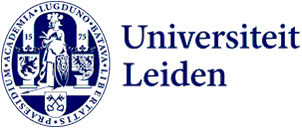
Environmental Humanities connects disciplines as well as people: ‘We need integration’
By means of a presentation, a panel discussion, and activities in the fresh air, the event themed ‘Environmental Humanities’, organised by the Honours College Humanities, managed to unite both people and disciplines. ‘There is a gap between humanities and sciences, but they are more alike than you might think.’
The Environmental Humanities event kicked off the Humanities Lab year. The Humanities Lab is the Honours College track of the humanities faculty, which is open to all bachelor’s students at Leiden University. Participants in the Honours College take an additional 30 EC of honours courses that students can partly design for themselves. The course Humanities Lab 101 is a mandatory course that familiarises students with different matters concerning humanity as well as various approaches to the humanities.
Necessary perspectives
Lecturer Johannes Müller gives the opening presentation. Rather than posing the question of what ‘environmental humanities’ are, he ponders the role of the humanities in debates about the environment, our surroundings, and nature. The answer is threefold: according to him, the humanities can and should offer a historic perspective, reflection, and cultural analysis. ‘Environmental sciences need these perspectives’, says Müller. His primary message: science needs to utilise the full potential of all its disciplines, and the humanities must be involved in environmental studies.

Bridging the gap
The opening presentation is followed by a panel discussion with scientists from various fields – Philosophy, Japan Studies, Sciences, and History – involved in Environmental studies. The members of the panel debate various theses as well as questions by students.
Thijs Bosker, senior lecturer Environmental Sciences: ‘I hardly ever find myself talking with a room full of humanities scholars. There is a lack of common ground between the humanities and sciences. We need people to bridge the gap’, he states. ‘We need integration.’
Urban Studies student Atte found the panel discussion illuminating: ‘I was a discussion rather than a lecture. During a lecture, matters are presented as fact, but this offers perspectives. The conversation provided a good example of different viewpoints that do and do not overlap.’
-

Students on excursion outside the university's walls. -

Students on excursion outside the university's walls. -

Students on excursion outside the university's walls. -

Students on excursion outside the university's walls.
Nibbling on plants
Afterwards, groups of students venture out with experts guiding them. Several outside activities are planned such as studying water samples from Leiden canals as well as an urban fossil and a sustainable heritage tour. The workshop about edible plants teaches students about useful plants that grow in their surroundings. Near the Lipsius building alone, ten to fifteen edible varieties can be found. Niga (19), second-year student of Biomedical Sciences: ‘Now we know a lot of plans are edible. Some counteract headaches, so after class I will have a nibble on those.’
Broaden horizons
After the tour, the students make pesto using organic ingredients. Niga is excited to start experimenting with edible plants at home. She found the day very interesting: ‘I personally experience the gap with the humanities; there are a lot of stereotypes about them and about us as scientists. I would like to learn about the other side – even though there is not really another side, but rather an extension. The disciplines are more alike than you might think. Oftentimes students attend the Honours College track at their own faculty, but I chose to broaden my horizons.’

Shared vulnerability
Another group of students attends a creative writing workshop concerning humanity and non-humanity. History student Douwe explains: ‘We wrote in different places in the city centre and afterwards we read our texts out loud to the group. That is vulnerability, to let everyone know what goes on inside your head. But after a while it did not matter anymore. It is a good way to overcome your fears and open yourself up to the rest of the group.’
And that wat it is about today: new perspectives and connectedness. Farah, an International Relations student: ‘It is great that honours education allows us to discover things outside of our own field of study. I also enjoy meeting new people!’ Finding common ground between both disciplines starts today at a successful Environmental Humanities event.
Text: Femke van de Griendt
Translation: Lucia Langerak
Images: Eric van den Bandt
